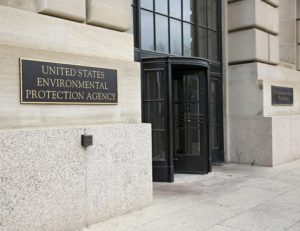Did you get distracted by Congressional Keystone XL discussions?
While the U.S. Senate debated a bill approving construction of the Keystone XL pipeline this week, and most major media outlets described how the outcome could impact the Louisiana runoff race for Sen. Mary Landrieu’s seat, members of the U.S. House were taking aim at the EPA’s Scientific Advisory Board.
House members passed H.R. 1422, the “EPA Science Advisory Board Reform Act of 2014,” which essentially invites the foxes to help protect the hen house.
“… persons with substantial and relevant expertise are not excluded from the Board due to affiliation with or representation of entities that may have a potential interest in the Board’s advisory activities, so long as that interest is fully disclosed to the Administrator and the public …”

The Board in question is the body that provides scientific advice to the administrator of the EPA, and the bill goes well beyond opening this space to industry-paid experts. The proposed law would effectively give such “experts” additional “umph” by forbidding scientists who have conducted peer-reviewed research from weighing in on their topics of study.
Because the bill seeks to make public commenting more onerous, the Congressional Budget Office has estimated it carries a $2 million price tag during implementation, mostly related to additional personnel and administrative expenses.
The end game of this and similar legislation — see H.R. 4012, the “Secret Science Act of 2014” — is nothing new to the men and women who have advocated for truly comprehensive health care services, which would include a full range of fertility, contraception and, yes, abortion services. If you can’t garner enough support to go after the exact piece of law that most offends you, create other laws so burdensome that the American people can no longer access or use the original, offending piece.
In other words, if the partisan push to eliminate the EPA remains distasteful to the American electorate, the GOP body has ways of shutting that whole thing down.
Instead of giving the EPA the best possible tools to accomplish its mission “to protect human health and the environment,” these measures seek to muddy the waters surrounding peer-reviewed research, tie the hands and gag the mouths of scientists participating in such research, and bury the whole mess under yards of unnecessary paperwork and red tape.
The bills do not promote better health or cleaner environments or even greater transparency — those outcomes were never the intention.
Instead, they create another space where politics and partisan bickering can be inserted into science. They stall and obstruct. They ensure that by the time anything actually gets accomplished, environmental and health problems are shrouded within industry-constructed cloaks and slick marketing campaigns.
Such bills want your focus to be on a Louisiana horserace or a Canadian oil pipeline — anywhere but on the science behind the emissions by the factory down the street.
This column by Lynda Waddington originally published in The Gazette on Nov. 22, 2014. Photo credit: Stephen Mally/The Gazette
